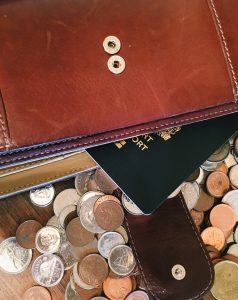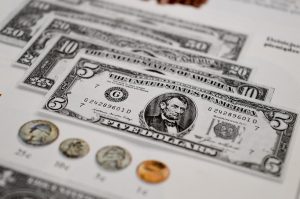A country’s foreign exchange reserves refer to the assets held by its central bank in foreign currencies such as the US dollar, euro or yen. These reserves are typically accumulated through a country’s trade surplus, foreign investment inflows, and borrowing from foreign lenders. A country’s forex reserves are held for various reasons, including to maintain a stable exchange rate, to support international trade and investment, to provide a buffer against external shocks, and to meet its external debt obligations.
However, there may be situations where a country decides to sell down its forex reserves. Here are some of the reasons why a country may take this step:
1. To support its domestic currency: A country may sell down its forex reserves to support its domestic currency in the foreign exchange market. This can happen when the country’s currency is experiencing significant depreciation due to factors such as a trade deficit, capital outflows, or a loss of investor confidence. By selling its foreign currency reserves, the central bank can increase the supply of its domestic currency in the market, which can help to stabilize its exchange rate.
2. To address a balance of payments crisis: A balance of payments crisis occurs when a country’s external payments exceed its international receipts. This can happen due to factors such as a large trade deficit, a decline in foreign investment inflows, or a sudden increase in external debt repayments. In such a scenario, a country may sell down its forex reserves to finance its external payments and avoid defaulting on its obligations.
3. To raise funds for economic development: A country may sell down its forex reserves to raise funds for economic development projects. This can happen when a country has limited access to external financing or when the cost of external borrowing is prohibitively high. By selling its forex reserves, the country can raise funds to invest in infrastructure, education, healthcare, and other areas that can support long-term economic growth.
4. To reduce currency risk: A country may sell down its forex reserves to reduce its exposure to currency risk. This can happen when a country holds a large amount of foreign currency reserves denominated in a particular currency, such as the US dollar. If the value of this currency declines significantly, it can lead to losses for the country. By selling down its forex reserves, the country can reduce its exposure to such risks.
5. To support international financial institutions: A country may sell down its forex reserves to support international financial institutions such as the International Monetary Fund (IMF). This can happen when the country is a member of the IMF and has committed to providing financial resources to support other member countries in times of crisis. By selling down its forex reserves, the country can contribute to the IMF’s resources and support its mandate of promoting international financial stability.
In conclusion, a country may sell down its forex reserves for a variety of reasons, including to support its domestic currency, address a balance of payments crisis, raise funds for economic development, reduce currency risk, and support international financial institutions. While selling forex reserves can provide short-term benefits, it can also lead to long-term risks such as depleting a country’s buffer against external shocks and limiting its ability to respond to future crises. Therefore, countries must carefully consider the costs and benefits of selling down their forex reserves and adopt a prudent approach to managing their external financial resources.






